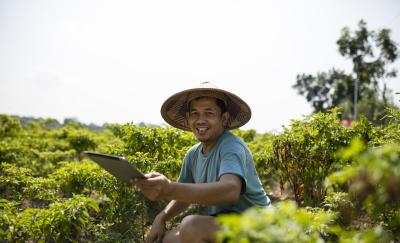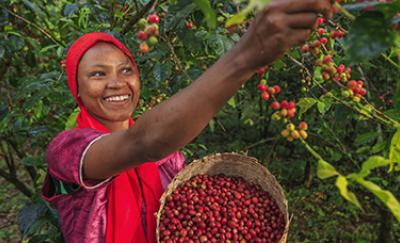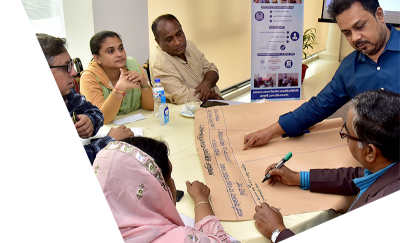Mozambique’s Cyclone Victims Maintain HIV Treatment Through Community Support


Sofala province in Mozambique has been the scene of several catastrophic weather events in recent years, with residents calling the province a “road of wind” due to the barrage of cyclones that have caused countless families to lose their homes and possessions. Without strong support systems, they have no option but to live out in the open, unsheltered. As a response, the Mozambican government created safe resettlement centers for the displaced. However, health care for these victims is often seen as a secondary concern. Between evacuations and the destruction of their homes, many HIV-positive people lose their medicines and health cards, preventing them from continuing treatment and causing their immune systems to weaken as stress compounds.
Marina Joaquim, 28, currently resides in the town of Tica in Nhamatanda district. She is the head of her family and mother to 5-year-old Beatriz. Marina discovered her HIV status during her pregnancy but, thanks to her consistent treatment, Beatriz was born negative.
In 2019, Marina and Beatriz were devastated by Cyclone Idai and other storms that swept through Mozambique, and Marina lost everything—including her health documents and antiretroviral (ARV) medication to treat her HIV. When she lost her medicines again during Cyclone Eloise, Marina went three weeks without ARVs. She also didn’t have access to a hospital at her new resettlement center. Without treatment, her health rapidly deteriorated.
One day, Marina met a counselor from the Abt-led ECHO project who provided counseling support to her and her family. Together, Abt, ECHO, and Mozambique are demonstrating another kind of resilience.


Abt-trained community workers ensure that those dealing with the fallout from natural disasters continue HIV treatment. At the resettlement center in Mafambisse district, they lead talks on HIV testing and ARVs, helping resettled people open up to receiving HIV care. Despite the loss and devastation that extreme weather has brought to Mozambique, ECHO counselors are ensuring that resettled families are getting the treatment they need to stay healthy.
Read More
Environment & Energy in Sub-Saharan Africa

USAID Catalytic Action through Localized Policy Solutions (CATALYST)
USAID CATALYST is a global program that helps countries build policy and institutional frameworks that enable greater investment in sustainability and resilience across sectors.

The Next Phase of Financing for Resilience
In our webinar, explore innovative financial strategies to enhance climate resilience and scale finance for sustainable development in emerging markets.

Health Systems Research (HSR) 2024
Abt Global is exhibiting and presenting at Health Systems Research (HSR) in Nagasaki, Japan in November 2024.

The 29th Conference of the Parties to the United Nations Framework Convention on Climate Change (COP29)
Abt will join governments, the private sector, and civil society at the 29th Conference of the Parties to the United Nations Framework Convention on Climate Change (COP29) this November to accelerate climate action.